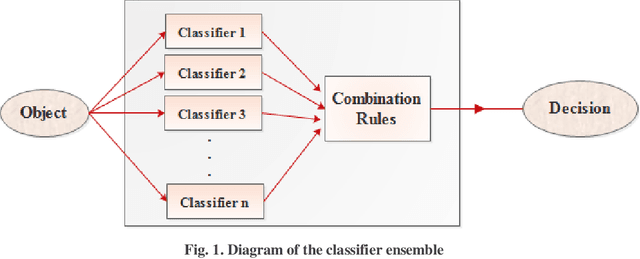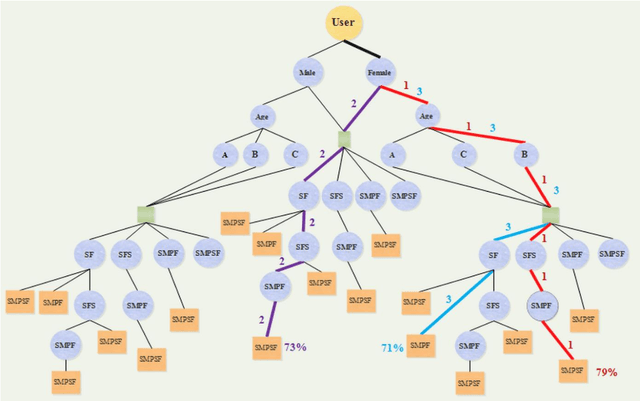Presentation of a Recommender System with Ensemble Learning and Graph Embedding: A Case on MovieLens
Paper and Code
Jul 15, 2020



Information technology has spread widely, and extraordinarily large amounts of data have been made accessible to users, which has made it challenging to select data that are in accordance with user needs. For the resolution of the above issue, recommender systems have emerged, which much help users go through the process of decision-making and selecting relevant data. A recommender system predicts users behavior to be capable of detecting their interests and needs, and it often uses the classification technique for this purpose. It may not be sufficiently accurate to employ individual classification, where not all cases can be examined, which makes the method inappropriate to specific problems. In this research, group classification and the ensemble learning technique were used for increasing prediction accuracy in recommender systems. Another issue that is raised here concerns user analysis. Given the large size of the data and a large number of users, the process of user needs analysis and prediction (using a graph in most cases, representing the relations between users and their selected items) is complicated and cumbersome in recommender systems. Graph embedding was also proposed for resolution of this issue, where all or part of user behavior can be simulated through the generation of several vectors, resolving the problem of user behavior analysis to a large extent while maintaining high efficiency. In this research, individuals most similar to the target user were classified using ensemble learning, fuzzy rules, and the decision tree, and relevant recommendations were then made to each user with a heterogeneous knowledge graph and embedding vectors. This study was performed on the MovieLens datasets, and the obtained results indicated the high efficiency of the presented method.
 Add to Chrome
Add to Chrome Add to Firefox
Add to Firefox Add to Edge
Add to Edge